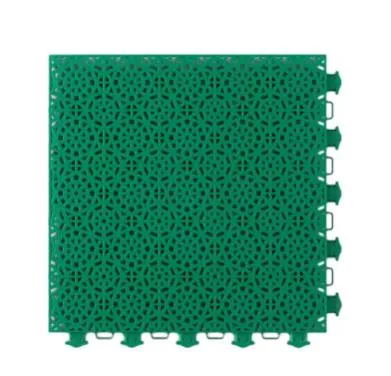- Afrikaans
- Arabic
- Belarusian
- Bengali
- Croatian
- Czech
- Danish
- Dutch
- English
- Estonian
- Finnish
- French
- Georgian
- German
- Greek
- hawaiian
- Hungarian
- Indonesian
- irish
- Italian
- Japanese
- kazakh
- Khmer
- Korean
- Kyrgyz
- Lao
- Latin
- Macedonian
- Malay
- Mongolian
- Myanmar
- Norwegian
- Persian
- Polish
- Portuguese
- Romanian
- Russian
- Serbian
- Spanish
- Swedish
- Tagalog
- Thai
- Turkish
- Turkmen
- Ukrainian
- Urdu
- Uzbek
- Vietnamese
- Zulu
Durability Testing for Interlocking Sports Floor Tiles
When sourcing interlocking sports floor tiles for wholesale distribution, durability is non-negotiable. Buyers demand products that withstand intense physical activity, environmental stress, and long-term use. This article explores how rigorous durability testing ensures reliability, cost-effectiveness, and versatility for wholesale partners, while highlighting key considerations like tile interlocking flooring designs, night sky interlocking tile aesthetics, interlock tiles price competitiveness, and the diverse types of interlock tiles available.

The Science Behind Testing Interlocking Sports Floor Tiles
Durability testing for interlocking sports floor tiles simulates real-world conditions to evaluate resilience. Manufacturers subject tiles to impact resistance tests, load-bearing trials, and moisture exposure to ensure they maintain structural integrity. For wholesale buyers, this means guaranteeing that products can handle high-traffic gyms, outdoor courts, or multi-purpose venues without warping or loosening. Advanced tile interlocking flooring systems are also tested for seamless connectivity, preventing gaps that could compromise safety. By prioritizing these tests, wholesalers can confidently market tiles as long-lasting solutions, reducing client concerns about replacements or repairs.
The interlock tiles price is often influenced by these testing protocols. Higher-quality materials and rigorous assessments may raise production costs, but they also justify premium pricing in wholesale negotiations. Partners seeking competitive pricing without sacrificing quality should prioritize suppliers who balance affordability with proven durability.
Aesthetic Meets Function: Night Sky Interlocking Tile Innovations
The night sky interlocking tile trend combines visual appeal with practicality. These tiles feature speckled designs resembling a starry sky, ideal for indoor sports facilities or recreational spaces aiming for a modern aesthetic. Durability testing ensures that the decorative layers resist fading under UV exposure, making them suitable for both indoor and semi-outdoor installations. Wholesale buyers can leverage this design versatility to cater to clients seeking visually striking yet functional flooring.
In addition to aesthetics, types of interlock tiles vary in texture and finish. Some prioritize shock absorption for basketball courts, while others offer slip-resistant surfaces for yoga studios. Rigorous testing ensures each variant meets industry standards, allowing wholesalers to expand their catalog with specialized options.
Balancing Cost and Quality in Interlock Tiles Price Strategies
Wholesale success hinges on offering interlock tiles price points that align with buyer budgets without compromising durability. Manufacturers that invest in efficient production methods—such as recycled materials or modular molding—can reduce costs while maintaining performance. For example, polypropylene-based interlocking sports floor tiles are lightweight, cost-effective, and pass impact resistance tests, making them ideal for large-scale projects.
Transparency in pricing also builds trust. Wholesalers should collaborate with suppliers who provide clear breakdowns of how testing protocols affect costs. This empowers buyers to justify pricing to their clients, emphasizing long-term savings from reduced maintenance.
Exploring the Range: Types of Interlock Tiles for Every Application
The diversity of types of interlock tiles ensures wholesalers can meet varied client needs. From hexagonal patterns for dance studios to diamond-textured tiles for weight rooms, each design undergoes specific durability tests. For instance, tiles intended for outdoor use are subjected to thermal cycling tests to ensure they expand and contract without cracking.
Tile interlocking flooring systems also vary in thickness. Thicker tiles are tested for heavy-duty applications like commercial gyms, while thinner options suit home fitness areas. By curating a range that includes night sky interlocking tile designs and functional variants, wholesalers can address both aesthetic and practical demands.
FAQs: Key Considerations for Wholesale Buyers
How does durability testing impact the lifespan of interlocking sports floor tiles?
Testing protocols simulate years of wear in a condensed timeframe, ensuring tiles withstand years of heavy use. This longevity justifies the interlock tiles price and reduces replacement costs for end-users.
Are night sky interlocking tiles suitable for outdoor use?
Yes, provided they undergo UV and moisture resistance testing. High-quality variants retain color and structural integrity even in semi-outdoor environments.
What factors influence the interlock tiles price in bulk orders?
Material grade, production scale, and testing intensity are primary factors. Larger orders often reduce per-unit costs, especially for standardized types of interlock tiles.
Can tile interlocking flooring be customized for specific sports?
Absolutely. Suppliers often adjust shock absorption, surface texture, and thickness based on sport-specific requirements, validated through targeted durability tests.
How do I verify the quality of interlocking sports floor tiles before bulk purchasing?
Request test certifications and physical samples. Reputable suppliers provide documentation and allow stress-testing samples to confirm performance.
-
Benefits of PP Interlocking Floors for Gym SpacesNewsJul.08,2025
-
Overview of Tennis Court Flooring MaterialsNewsJul.08,2025
-
Portable Basketball Floor SystemsNewsJul.08,2025
-
Eco-Friendly Badminton Court Flooring OptionsNewsJul.08,2025
-
Durability Testing for PVC Floor Mat RollsNewsJul.08,2025
-
Top Materials Used in Tennis Court FlooringNewsJul.03,2025
-
Popular Types of Pickleball Court Flooring ExplainedNewsJul.03,2025

